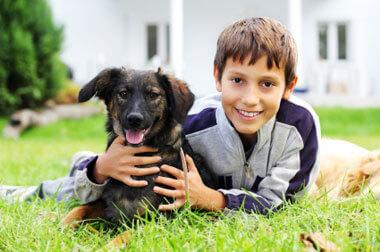
Unfortunately, cancer affects animals as well as humans. Cancer is caused by the uncontrolled growth of cells in the body. These cells serve no purpose and can originate in any of the body's tissues. The cancerous tumor can expand, and if it connects with the circulatory or lymph systems, can spread and infect other tissues in the body.
Cancer in dogs is on the rise, especially in those over 10 years old. While not quite as common in cats, they are also susceptible to cancer. Advances in veterinary medicine have resulted in pets living longer, which makes them susceptible to diseases of old age, such as cancer and heart disease. However, veterinarians can now treat cancer and, when diagnosed and treated early, about half of all cancers in dogs can be cured.
Abnormal bleeding, new lumps or bumps, wounds that don't heal, and enlarged lymph nodes are some of the common signs that your dog or cat may be developing cancer and should be seen by a veterinarian immediately.
There are a number of diagnostic tests that can be performed on your pet for cancer, including blood tests, X-rays, urinalysis, endoscopy, and biopsy, to name a few. Cancer treatments for pets include surgery to remove cancer tissue, radiation, and chemotherapy.
Veterinary oncology is a growing specialty within the veterinary field, and we are pleased to have several Veterinary Oncology Specialists in the Denver area to treat dogs and cats with cancer.
For more information about cancer in dogs and cats, visit WebMD's Healthy Pets.
